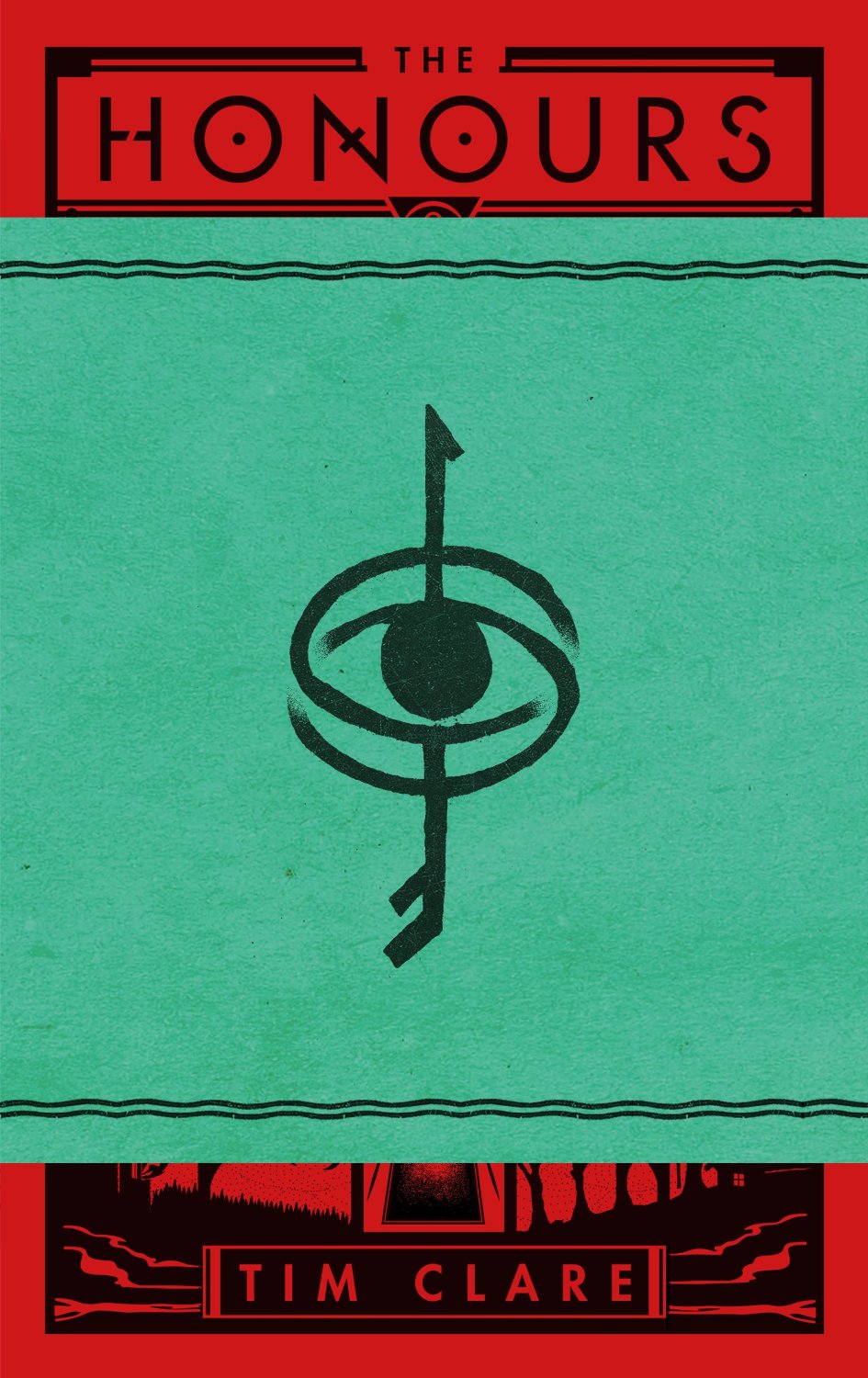 The Honours
The Honours
Allen & Unwin, RRP $27.99
June 2015
Astonishing.
Haunting.
Gripping.
Irresistible.
These are the only four words I read prior to cracking open Tim Clare’s debut novel, The Honours, plastered as they were on the four corners of the truncated dustjacket.
There are those who prefer to screen potential reading material, scouring blurbs and reviews until there is barely a reason left to read the book itself. My advice of the day is to save yourself the time investigating and just read, dammit. Read a book you’ve never heard of and know nothing about. This is a matter of wellbeing and should be done at least as often as taking a stroll through a sun-dappled forest—minimum dose: once every twelve months.
I took up The Honours, unashamedly attracted by the bright red cover half hidden by the shortened green dustjacket. I avoided peeking beneath and only glanced over the blurb. It was clear there was a mystery to be solved and I was ready to play the game.
And so it was that I embarked upon The Honours with scarce a taper to guide me.
The Honours is set in 1935 in an England not yet healed from the Great War and treading ever steadily toward the next. This is hardly addressed in the book but as a reader you know that 1935 is only two years after 1933 and a mere four years away from 1939. It was, at least for me, difficult not to colour the entire book with the shades of the history I know.
Delphine and her parents move to Alderberen Hall in the Norfolk countryside. There, with the help of the creepy Mr. Propp and his oddball-attracting pseudo-psychological “society”, Delphine’s parents hope to bring her father out of his spiralling mental decline.
Delphine is the sort of girl I would have loved to read about when I was her age—twelve going on thirteen. A girl who knows her Winchesters from her Mausers, and her Siege of Antioch from her Battle of Albert. A girl who gets her clothes dirty, and catches crabs and day-dreams about weeding out wily Bolsheviks. What’s not to love?* Delphine is a soldier, nay, a general in the making. With the help of the head gamekeeper, Mr. Garforth, Delphine is plunged into the thick of a battle to save her family, England and the world from an unfathomable enemy.
And that brings us to the enemy. Who is the enemy? Ah, that is the age old question, is it not? And perhaps a cousin to the question Mr. Garforth poses to Delphine when she is so keen to learn how to shoot a gun—what does a soldier most fear to see in the enemy’s eyes? It is a question Delphine attempts to answer many times but only after battle can she truly understand what it means to be a soldier.
Tim Clare’s background as a performance poet shines through in his command of language and cinematic imagery. Even the simplicity of the wind over a field of wheat described as a ‘rippling golden ocean’ has an air of magic about it. Though at times the pacing suffers, the writing is clearly a labour of love; the descriptions are a joy to read and envision as an IMAX film in your mind’s eye.
Moving slowly—or swiftly, to be honest it was both—from a perfectly believable girl’s own adventure story to something, quite literally, out of this world, it is difficult to pin down a genre for this novel. Genre picking (or suffocating a good story) is something I despise doing but, thankfully, Tim Clare himself seems to be of a similar mind and has compiled this very helpful list of officially endorsed genres he is happy for you to file The Honours under.
I concur, sir, I concur.
*Unfortunately as a child, my literary role models were few and far between. Perhaps that is why the thought that Daphne Du Maurier’s Rebecca would pilot a boat in a storm (end of novel notwithstanding) or that Roald Dahl’s Matilda could be so cleverly sneaky, resonated more strongly by virtue of being such scarce reflections of the sort of girl I was (or wanted to be—although who’d go out in a boat in a storm?). Is it any wonder the old nonsense that “girls will read about both boys and girls” but “boys only read about boys” gets any traction? Of course girls will read both, especially if the only characters representing their own ideals and personalities are boys. And that is just touching the surface in a cis-only context. Let’s get back to the main body shall we?

